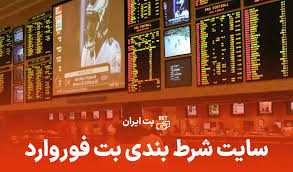Betting, an age-old practice steeped in history, هات بت بدون فیلتر برای اندروید has undergone a remarkable evolution over the centuries. From its humble beginnings in ancient civilizations to its modern-day manifestation as a multi-billion-dollar industry, the journey of betting reflects not only changes in societal norms but also advancements in technology and entertainment. In this article, we delve into the rich tapestry of betting, exploring its origins, cultural significance, and contemporary trends.
Ancient Origins:
The roots of betting can be traced back to ancient civilizations, where it often took the form of rudimentary wagering on sports, games, and events. In ancient Greece, for example, spectators would place bets on athletic competitions such as the Olympics, adding an extra layer of excitement to the proceedings. Similarly, in ancient Rome, chariot races and gladiatorial contests attracted both participants and spectators keen to test their luck and skills through betting.
Cultural Significance:
Betting has long held cultural significance, serving as a form of entertainment, social interaction, and even religious ritual in some societies. In medieval Europe, for instance, betting on the outcome of jousting tournaments was a popular pastime among nobles and commoners alike, fostering a sense of camaraderie and competition. Likewise, in Asian cultures, traditional games like mahjong and pai gow have a strong association with betting, reflecting the region’s penchant for strategic gameplay and risk-taking.
Industrial Revolution and Beyond:
The advent of the Industrial Revolution marked a turning point in the history of betting, as advancements in technology and communication facilitated the emergence of organized gambling enterprises. From horse racing to card games, the 19th century saw the proliferation of betting establishments, ranging from opulent casinos to underground gambling dens. This era also witnessed the rise of bookmakers and betting exchanges, laying the groundwork for the modern betting industry.
Legalization and Regulation:
In the 20th century, attitudes towards betting underwent significant shifts, with many governments opting to legalize and regulate gambling activities. This trend was driven by various factors, including the desire to generate tax revenue, combat organized crime, and address public demand for recreational betting. Today, countries around the world have implemented varying degrees of regulation, ranging from strict licensing requirements to comprehensive consumer protection measures.
Technological Innovation:
The digital age has revolutionized the betting landscape, ushering in an era of unprecedented accessibility and convenience. Online betting platforms, mobile applications, and live streaming services have transformed the way people engage with betting, enabling them to place wagers anytime, anywhere. Moreover, advancements in data analytics and artificial intelligence have empowered bettors with valuable insights and predictive tools, enhancing the overall betting experience.
Emerging Trends:
Looking ahead, the future of betting appears poised for further innovation and diversification. Esports betting, for example, has emerged as a rapidly growing market, driven by the popularity of competitive gaming tournaments and the rise of online streaming platforms. Similarly, the legalization of sports betting in select jurisdictions has opened up new opportunities for operators and investors alike, fueling speculation about the potential impact on traditional sports leagues and franchises.
Conclusion:
From its ancient origins to its modern-day manifestations, betting has evolved into a global phenomenon with far-reaching cultural, economic, and technological implications. While its history is characterized by periods of prohibition and controversy, betting remains a ubiquitous aspect of human society, reflecting our innate propensity for risk-taking and competition. As we navigate the complexities of the 21st century, the story of betting continues to unfold, shaped by changing attitudes, technological advancements, and shifting regulatory landscapes.

